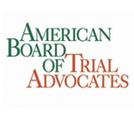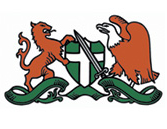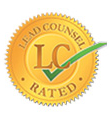In the blink of an eye, lives can be forever altered by the devastating consequences of drunk driving. Behind every statistic lies a story of shattered dreams, irreplaceable loss, and immeasurable grief.
Families grappling with the wrongful death of a loved one often find themselves navigating a complex legal landscape. This article serves as a guide through the intricate process of seeking compensation for wrongful death resulting from drunk driving incidents.
The Impact of Drunk Driving
The impact of drunk driving resonates far beyond the statistics that quantify its occurrence. Each incident leaves in its wake a trail of devastation, affecting individuals, families, and communities.
Lives are abruptly cut short and dreams are shattered. The physical, emotional, and financial toll inflicted by drunk driving is immeasurable. Families are left grappling with grief, forced to confront a new and unwelcome reality without the presence of a cherished loved one.
The ripple effect of a drunk driving fatality extends to survivors, leaving them to navigate trauma, sorrow, and a profound sense of injustice. Moreover, the financial burdens imposed by medical expenses, funeral costs, and lost earnings compound the distress, turning an already dire situation into a multifaceted crisis. This is why it is crucial for survivors to pursue compensation.
What is a Wrongful Death Claim?
A wrongful death claim is a legal action brought by the surviving family members or beneficiaries of an individual who has died due to another party's negligent, reckless, or intentional actions. Essentially, it seeks to hold the responsible party accountable for the death and recover damages on behalf of the deceased person's estate and surviving family members.
The damages sought in wrongful death claims can include both non-economic and economic losses. Economic damages can cater for medical expenses, loss of financial support, funeral costs, and other financial losses that can be easily quantified. Non-economic damages often encompass more subjective losses, including pain and suffering, emotional distress, and loss of consortium experienced by the surviving family members.
Elements Required to Establish a Drunk Drinking Wrongful Death Case
Certain key elements must typically be demonstrated to establish a wrongful death case. These elements include the following:
- Death of a person — There must be an individual's death, which must have resulted from the defendant's act of driving while intoxicated.
- Causation — There must be a direct link between the defendant's actions or negligence and the death. Establishing causation is crucial to proving that the defendant's conduct was a substantial factor in causing the fatal outcome.
- Surviving family members or beneficiaries — There should be surviving family members or beneficiaries who have suffered measurable damages as a result of the death. This typically includes spouses, children, or other dependents.
Establishing Intoxication in Wrongful Death Claims for Drunk Driving Incidents
In a wrongful death claim for drunk drinking incidents, you must demonstrate that the defendant was under the influence of alcohol or drugs at the time of the incident. Here are the key steps you and your attorney can take to do this:
- Investigation and evidence gathering — Conduct a thorough investigation to gather evidence indicating the intoxicated state of the responsible party. This can include police reports, witness statements, and any chemical tests conducted at the scene.
- Blood Alcohol Concentration (BAC) tests — BAC tests, commonly administered by law enforcement after accidents, measure the level of alcohol in an individual's bloodstream. A high BAC can serve as strong evidence of intoxication.
- Witness testimony — Eyewitnesses who observed the defendant's behavior, slurred speech, erratic driving, or other signs of impairment can provide valuable testimony to establish intoxication.
- Surveillance footage — If available, surveillance footage from the scene or nearby locations can be used to support the claim. It may show the defendant's actions leading up to the incident.
- Admission of guilt — Statements made by the responsible party, such as admitting to consuming alcohol or drugs, can be crucial in establishing intoxication. This could be statements made to law enforcement, witnesses or captured in other ways.
- Expert testimony — Expert witnesses, such as toxicologists, can analyze the available evidence and testify about the impact of intoxication on a person's ability to operate a vehicle or engage in certain activities.
- Medical records — In some cases, medical records may indicate the presence of drugs or alcohol in the defendant's system, further supporting the claim of intoxication.
- Chain of custody — Ensuring the proper chain of custody for any evidence, especially blood or urine samples, is crucial. This helps establish the reliability of the evidence presented.
Compensation Available in Wrongful Death Cases
Compensation available in wrongful death cases typically includes both economic and non-economic damages. The specific amount of money you will receive depends on the case's specific circumstances.
Generally, here are the categories of damages the court may award you:
- Medical expenses — Costs associated with medical treatment and care before the victim's death.
- Funeral and burial costs — Expenses related to funeral, burial, or cremation services.
- Lost earnings — Compensation for the income the deceased would have earned if they had lived.
- Pain and suffering — Compensation for the physical and emotional pain endured by the deceased before death.
- Loss of companionship — Damages for the emotional suffering and loss of companionship experienced by surviving family members.
- Loss of consortium — Compensation for the loss of spousal companionship and support.
- Emotional distress — Damages for the emotional suffering and psychological impact on the surviving members of the family.
- Punitive damages — In some cases, punitive damages may be awarded to punish the responsible party for especially egregious conduct and to deter similar behavior in the future.
The calculation of damages may consider factors such as the deceased's age, health, and earning potential, as well as the relationship between the deceased and the surviving family members. Consulting with an experienced personal injury attorney is crucial for navigating the legal complexities and ensuring that all eligible compensation is pursued in a wrongful death case.
Legal Process for Wrongful Death Claims
The legal process for wrongful death claims after a drunk driving incident involves several steps. Here is a general outline of the legal process:
- Consultation with an attorney — The process typically begins with the surviving family members consulting with a personal injury attorney specializing in wrongful death cases. The attorney will assess the case's merits and guide the legal options.
- Investigation — The attorney, often working with investigators and experts, conducts a thorough investigation to gather evidence supporting the wrongful death claim. This may include accident reports, witness statements, medical records, and any available surveillance footage.
- Filing a lawsuit — If a settlement cannot be reached through negotiations with the responsible party's insurance or legal representatives, the attorney files a wrongful death lawsuit on behalf of the surviving family members. This initiates the formal legal process.
- Discovery phase — Both parties engage in the discovery process, exchanging relevant information and evidence. This phase may involve depositions, interrogatories, and requests for documents to strengthen each side's case.
- Negotiations and settlement attempts — There may be opportunities for settlement negotiations throughout the legal process. The liable party or their insurance company may offer a settlement to avoid a trial. The attorney advises the surviving family members on whether to accept or pursue the case in court.
- Trial — The case proceeds to trial if negotiations or settlement attempts are unsuccessful. Both parties present their evidence, witnesses, and legal arguments. A judge or jury will then determine the outcome.
- Judgment and compensation — If the court rules in favor of the deceased's estate, a judgment is issued, and compensation is determined. The amount may include economic and non-economic damages.
- Appeals (if applicable) — Either party may appeal the court's decision if they believe there were legal errors during the trial. The appellate process involves presenting arguments to a higher court.
- Distribution of compensation — Once compensation is awarded, the attorney helps ensure that it is distributed according to the legal requirements, often involving the deceased person's estate and surviving family members.
Surviving family members must work closely with a skilled attorney throughout the legal process to navigate complexities, protect their rights, and maximize their chances of a just outcome. Legal timelines, procedures, and requirements can vary, so consulting with an attorney who understands the jurisdiction-specific nuances is essential.
Challenges in Drunk Driving Wrongful Death Cases
Navigating drunk driving wrongful death cases presents several challenges, ranging from legal complexities to emotional and practical difficulties. Here are some common challenges associated with these cases:
- Evidence collection — It can be challenging to gather compelling evidence to establish the responsible party's intoxication and link it to the fatal incident. This includes obtaining accurate blood alcohol concentration (BAC) results, witness statements, and any available surveillance footage.
- Insurance company tactics — Dealing with the responsible party's insurance company can be challenging. Insurers may attempt to minimize liability or offer settlements that do not adequately compensate for the full extent of damages.
- Defenses and legal strategies — Defense attorneys may employ various strategies to dispute liability, such as challenging the reliability of BAC tests, questioning witness credibility, or arguing that other factors contributed to the accident.
- Emotional impact — The emotional toll on surviving family members can be immense. Balancing legal proceedings with grief and trauma poses a significant challenge.
- Criminal proceedings — In cases where the responsible party faces criminal charges for DUI or vehicular manslaughter, the outcome of criminal proceedings can impact the civil wrongful death case.
- Multiple defendants — In some cases, there may be multiple parties involved. Determining liability and apportioning responsibility can be complex.
- Witness cooperation — Securing cooperation from witnesses, especially if they fear legal repercussions or have a relationship with the responsible party, can be challenging.
- Expert testimony — Presenting expert testimony to establish the connection between intoxication and the accident may require overcoming challenges posed by opposing expert witnesses.
- Compensation limits — Some jurisdictions limit the amount of compensation that can be awarded in wrongful death cases, which may impact the ability to address the losses suffered fully.
Overcoming these challenges necessitates strategic legal representation, thorough case preparation, and compassionate support for the grieving family. Seeking guidance from experienced personal injury attorneys specializing in wrongful death cases is essential to navigate these complexities and effectively pursue justice.
Statute of Limitations for Wrongful Death Cases
The statute of limitations for wrongful death cases sets a specific time limit within which a legal action must be initiated. This time limit varies by jurisdiction, and the specific rules depend on the laws of the state where the incident occurred.
It can range from one to several years, and the clock typically starts ticking from the date of the deceased person's death. Understanding and adhering to the statute of limitations is crucial to preserve the right to bring a wrongful death claim.
Certain circumstances may lead to the tolling or pausing of the statute of limitations. For example, the time limit might be extended if the responsible party is out of the jurisdiction or if the claimant is a minor or legally incapacitated.
If the wrongful death involves government entities or employees, specific notice requirements and shorter time limits may exist. Failing to comply with these requirements can jeopardize the ability to file a claim.
Filing a lawsuit after the expiration of the statute of limitations is likely to result in the case being dismissed. Initiating legal action within the prescribed time frame is essential to preserve the right to seek compensation.
Given the variability in statutes of limitations, it is advisable to consult with a wrongful death attorney promptly after the death of a loved one. An attorney can provide guidance on the specific time limits applicable to the case.
Surviving family members should proactively seek legal advice and initiate a wrongful death claim within the required timeframe. The failure to meet the statute of limitations can be a significant barrier to seeking justice and compensation for the losses suffered. Consulting with a qualified attorney ensures compliance with the applicable laws and maximizes the chances of a successful wrongful death claim.
How a Wrongful Death Attorney Can Help You
A wrongful death attorney plays a crucial role in helping individuals and families navigate the legal complexities associated with losing a loved one due to someone else's negligence or wrongful actions. Here are ways in which a wrongful death attorney can be instrumental:
- Legal guidance and expertise — Attorneys specializing in wrongful death cases possess a deep understanding of relevant laws, regulations, and legal precedents. They provide expert guidance to navigate the complex legal landscape.
- Case evaluation — Attorneys assess the merits of a potential case, considering factors such as evidence, liability, and damages. They help clients understand the likelihood of success and potential compensation.
- Investigation and evidence gathering — Attorneys conduct thorough investigations to gather evidence supporting the wrongful death claim. This includes obtaining police reports, medical records, witness statements, and other pertinent information.
- Negotiations with insurance companies — Dealing with insurance companies can be challenging. Attorneys negotiate on behalf of the family to secure fair and adequate compensation, ensuring that insurers do not take advantage of the situation.
- Filing and managing legal proceedings — Attorneys handle the legal paperwork, including filing the wrongful death lawsuit and managing all court-related procedures. This includes meeting deadlines, submitting necessary documents, and ensuring compliance with legal requirements.
- Expert witness coordination — In cases where expert testimony is essential, such as accident reconstruction specialists or medical experts, attorneys coordinate the involvement of these professionals to strengthen the case.
- Navigating legal complexities — Wrongful death cases involve intricate legal processes and potential challenges. Attorneys help clients understand their rights, navigate court procedures, and anticipate potential obstacles.
- Advocacy in court — If a settlement cannot be reached, attorneys represent clients in court, presenting the case, examining witnesses, and arguing on behalf of the family to secure a favorable judgment.
- Comprehensive damages assessment — Attorneys work with financial experts to assess the full extent of economic and non-economic damages, ensuring that all eligible compensation is pursued.
- Maximizing compensation — Attorneys strive to maximize compensation for the surviving family members, taking into account all applicable damages, including medical expenses, funeral costs, lost earnings, and non-economic losses.
- Statute of limitations adherence — Attorneys ensure compliance with statutory timelines, avoiding the risk of losing the right to file a wrongful death claim due to exceeding the statute of limitations.
Engaging the services of a skilled wrongful death attorney is vital for navigating the complexities of these cases and pursuing justice and compensation effectively. Their expertise and advocacy can provide families with the support needed during an undoubtedly challenging time.
Find a Wrongful Death Attorney Near Me
If you or someone you know has lost a loved one due to drunk driving, seeking legal counsel is not just an option; it's a path toward justice and closure. At Los Angeles Car Accident Attorney, our team is here to help you pursue fair and just compensation.
Contact us today to explore your options, understand your rights, and embark on the journey toward compensation and accountability. Together, we can work to ensure that the memory of your loved one is honored and that those responsible for their wrongful death are held accountable for their actions. Call us today at 424-237-3600 for a free consultation.






